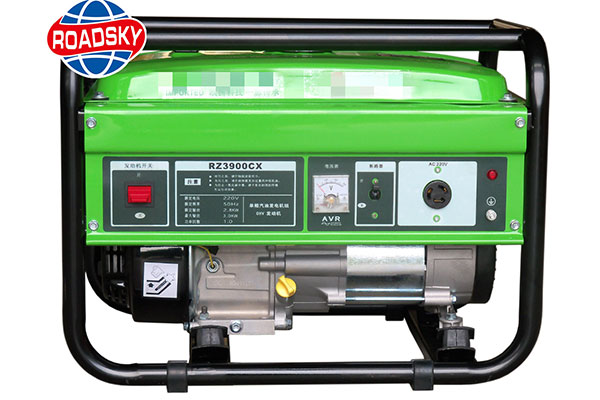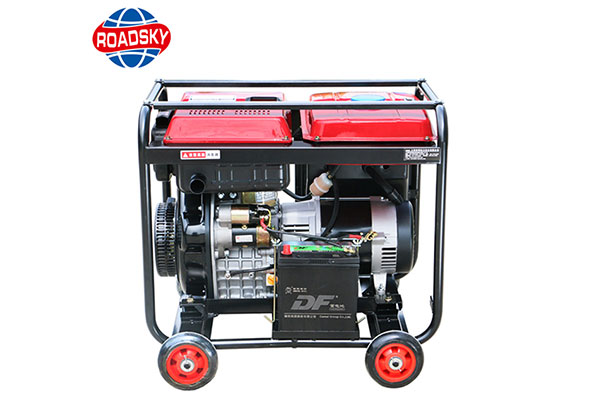Gasoline vs Diesel Generator: How to Choose?
When it comes to choosing a generator, one of the most important decisions you’ll need to make is whether to go with a gasoline or diesel model. Both options have their pros and cons, and the choice you make will depend on your specific needs and circumstances. In this article, we’ll take a closer look at the differences between gasoline and diesel generators to help you make an informed decision.
Gasoline Generators
Gasoline generators are the most common type of portable generator. They are powered by gasoline and are generally less expensive than diesel generators. Gasoline is readily available and easy to obtain, making it a popular choice for homeowners and contractors alike.

Advantages of Gasoline Generators
- Cost: Gasoline generators are generally less expensive than diesel generators. They are a more affordable option for homeowners who need a portable generator for occasional use.
- Availability: Gasoline is widely available and easy to find. You can easily fill up your generator at a gas station or convenience store.
- Easy to Use: Gasoline generators are easy to operate. They require minimal maintenance and are simple to start.
- Lightweight: Gasoline generators are generally lighter than diesel generators. They are easier to move around and transport.
Disadvantages of Gasoline Generators
- Fuel Efficiency: Gasoline generators are not as fuel-efficient as diesel generators. They burn more fuel and need to be refueled more frequently.
- Shorter Lifespan: Gasoline generators have a shorter lifespan than diesel generators. They are not built to withstand heavy use over a long period of time.
- Noisy: Gasoline generators are often loud and can be disruptive. They may not be ideal for use in quiet residential areas. (But with the advancement of technology, silent gasoline generators have been developed.)
- Environmental Impact: Gasoline generators produce more emissions than diesel generators. They are not as environmentally friendly.
Diesel Generators
Diesel generators are a more powerful and efficient option than gasoline generators. They are often used in industrial settings and for backup power in hospitals and other critical facilities. Diesel is more expensive than gasoline, but diesel generators are generally more fuel-efficient and have a longer lifespan.

Advantages of Diesel Generators
- Fuel Efficiency: Diesel generators are more fuel-efficient than gasoline generators. They burn less fuel and can run for longer periods of time.
- Durability: Diesel generators are built to last. They are designed to withstand heavy use over a long period of time.
- Power: Diesel generators are more powerful than gasoline generators. They are often used for industrial applications and for backup power in critical facilities.
- Quieter: Diesel generators are generally quieter than gasoline generators. They produce less noise and may be more suitable for use in residential areas.
Disadvantages of Diesel Generators
- Cost: Diesel generators are more expensive than gasoline generators. They may not be a practical option for homeowners who need a portable generator for occasional use.
- Maintenance: Diesel generators require more maintenance than gasoline generators. They need to be serviced regularly to ensure they are functioning properly.
- Availability: Diesel is not as widely available as gasoline. It may be more difficult to find a fueling station that sells diesel fuel.
- Heavy: Diesel generators are generally heavier than gasoline generators. They may be more difficult to move around and transport.
Which Generator Should You Choose?
When it comes down to it, the generator you choose will depend on your specific needs and circumstances. Gasoline generators are a more affordable option for homeowners who need a portable generator for occasional use. They are easy to use and widely available, but they may not be as fuel-efficient or durable as diesel generators.
Diesel generators are a more powerful and efficient option for industrial applications and backup power in critical facilities. They are more expensive and require more maintenance, but they have a longer lifespan and are built to withstand heavy use over a long period of time. They may also be quieter and more environmentally friendly than gasoline generators.
If you’re trying to decide between a gasoline or diesel generator, here are some questions to consider:
- How often will you be using the generator?
- What type of appliances or equipment will you be powering with the generator?
- How much noise can you tolerate?
- What is your budget for a generator?
- Do you have easy access to gasoline or diesel fuel?
Answering these questions can help you narrow down your options and make a more informed decision. RoadskyMaintenance supplies gasoline and diesel generators, there are many models, suitable for many scenarios, if you are looking for generator suppliers, you can contact us directly.
Conclusion
In summary, gasoline and diesel generators each have their own advantages and disadvantages. Gasoline generators are more affordable and easy to use, but they may not be as fuel-efficient or durable as diesel generators. Diesel generators are more powerful and efficient, but they are more expensive and require more maintenance. When choosing between the two, consider your specific needs and circumstances to make the best decision for your situation.

